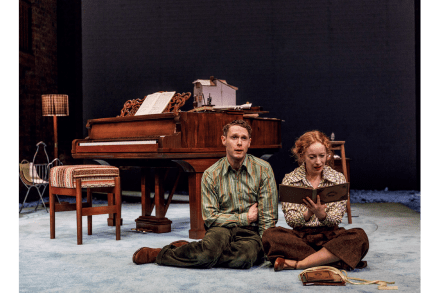From the sublime to the ridiculous: Royal Ballet’s MacMillan triple bill reviewed
My feelings about the genius of Kenneth MacMillan have always been volatile, but in the course of the Royal Ballet’s current triple bill, they veered even more wildly than usual between uncomplicated delight, awed reverence and embarrassment. A revival of his early Danses Concertantes, firing off Stravinsky at his most effervescent and designed with exuberantly colourful Festival-of-Britain jazziness by Nicholas Georgiadis, provided half an hour of pure joy. Stylistically an exercise in the neoclassicism that dominated the postwar era, it’s witty, chic and upbeat, exploring sharp angles rather than smooth curves and lyrical lines. MacMillan’s choreographic invention is profligate, with little twists and unexpected turns, all infused with an infectious




















